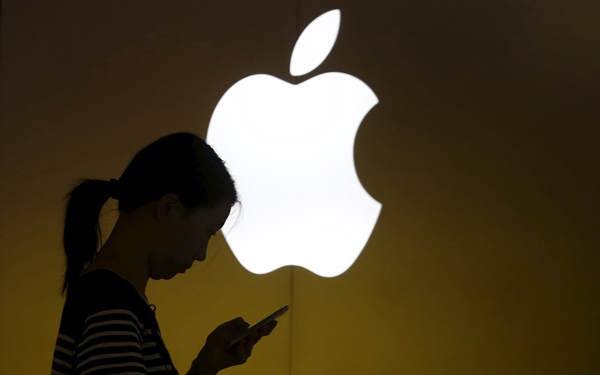In China, glass is barely half full for Apple
By Zhu Qiwen (China Daily) Updated: 2016-01-29 08:13
 |
|
A woman looks at the screen of her mobile phone in front of an Apple logo outside its store in downtown Shanghai in this September 10, 2013 file photo. [Photo/Agencies] |
Strangely few people applauded Apple for making the largest quarterly earnings by any company. Instead, many media outlets seem to regard it as a cause for concern, especially because of iPhone's "dubious" future in China.
Does the predicted first decline in iPhone sales in the current quarter really signify the beginning of the end of a technological era ushered in by the market-leading, life-changing iPhone? This is open to debate, because it is difficult to say how dim the global growth prospect will become and whether Apple can wow the world again with another wonderful product.
But any suggestion that the Chinese market is losing luster as one of the key growth drivers, if not the most important one, for Apple deserves a closer look against the less-noticed reality of steady consumer growth in China, as opposed to the downbeat news on the country's industrial sector.
Apple sold 74.8 million iPhones in its fiscal first quarter ending in Dec 26. Though its sales did not beat market expectations and net income increased only 2 percent, the lowest year-on-year quarterly growth since the introduction of the lifestyle-changing handsets in 2007, Apple still made $18.4 billion in profit in the last quarter of 2015, beating the record it had set a year earlier.
Apple's performance is remarkable not only because it came against the backdrop of a sluggish global economy but also because it was achieved despite China's slowest economic growth in a quarter century and increasing competition from local smartphone makers. The company's revenue from Chinese buyers in the last quarter of 2015 increased 14 percent year-on-year accounting for a quarter of its total global revenue. Had Chinese consumers shown signs of cutting their spending on iPhones because of the slowing growth at home, fears that Apple's sales in China could falter would make economic sense.

I’ve lived in China for quite a considerable time including my graduate school years, travelled and worked in a few cities and still choose my destination taking into consideration the density of smog or PM2.5 particulate matter in the region.











